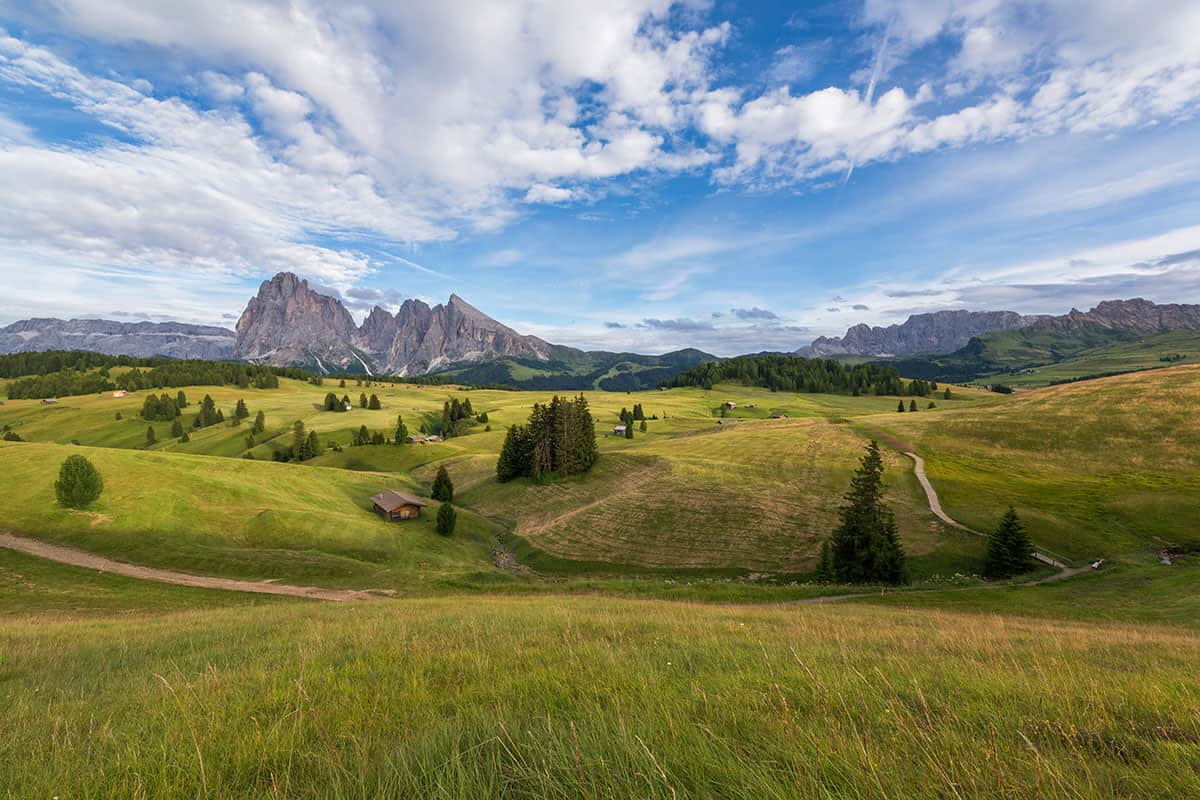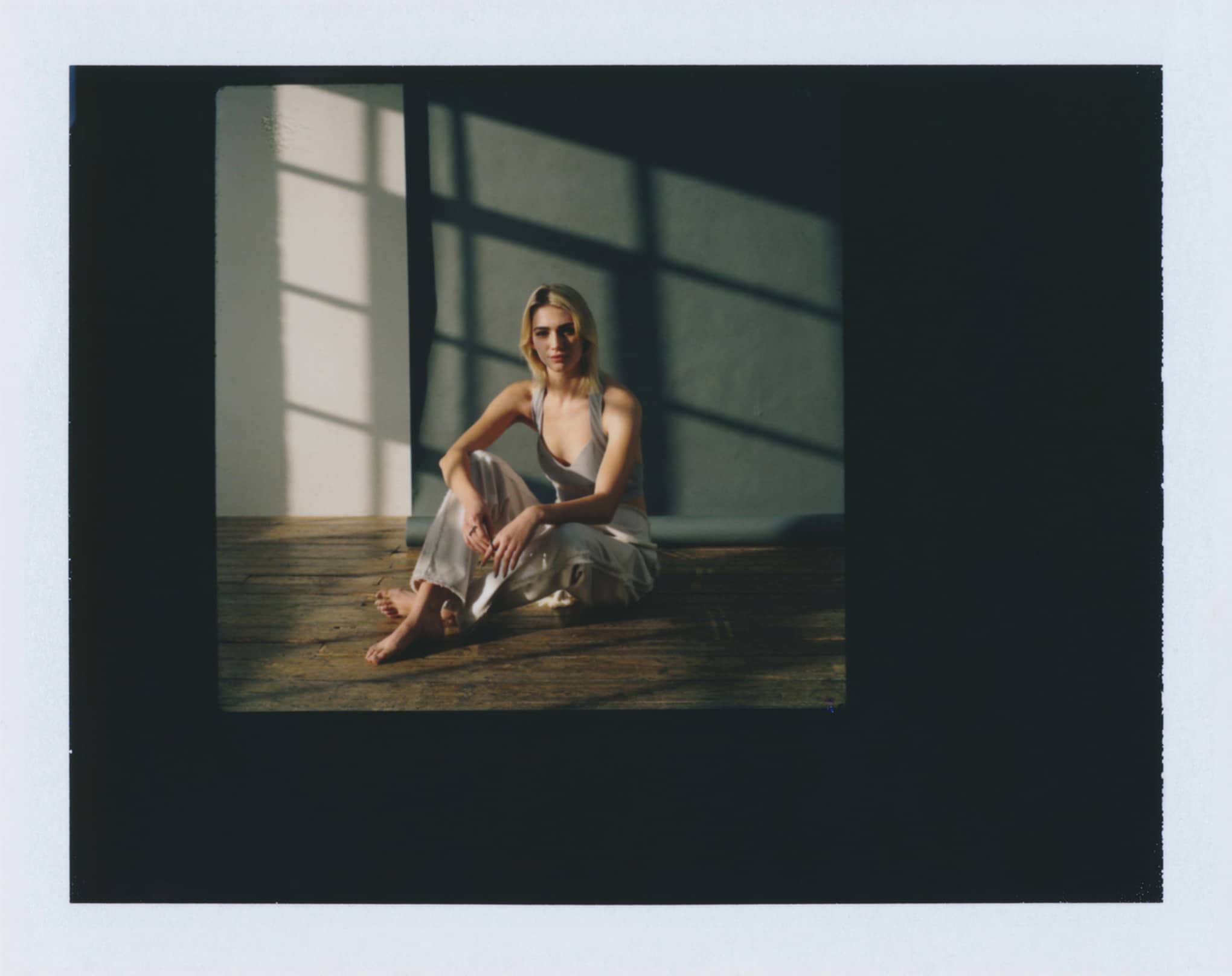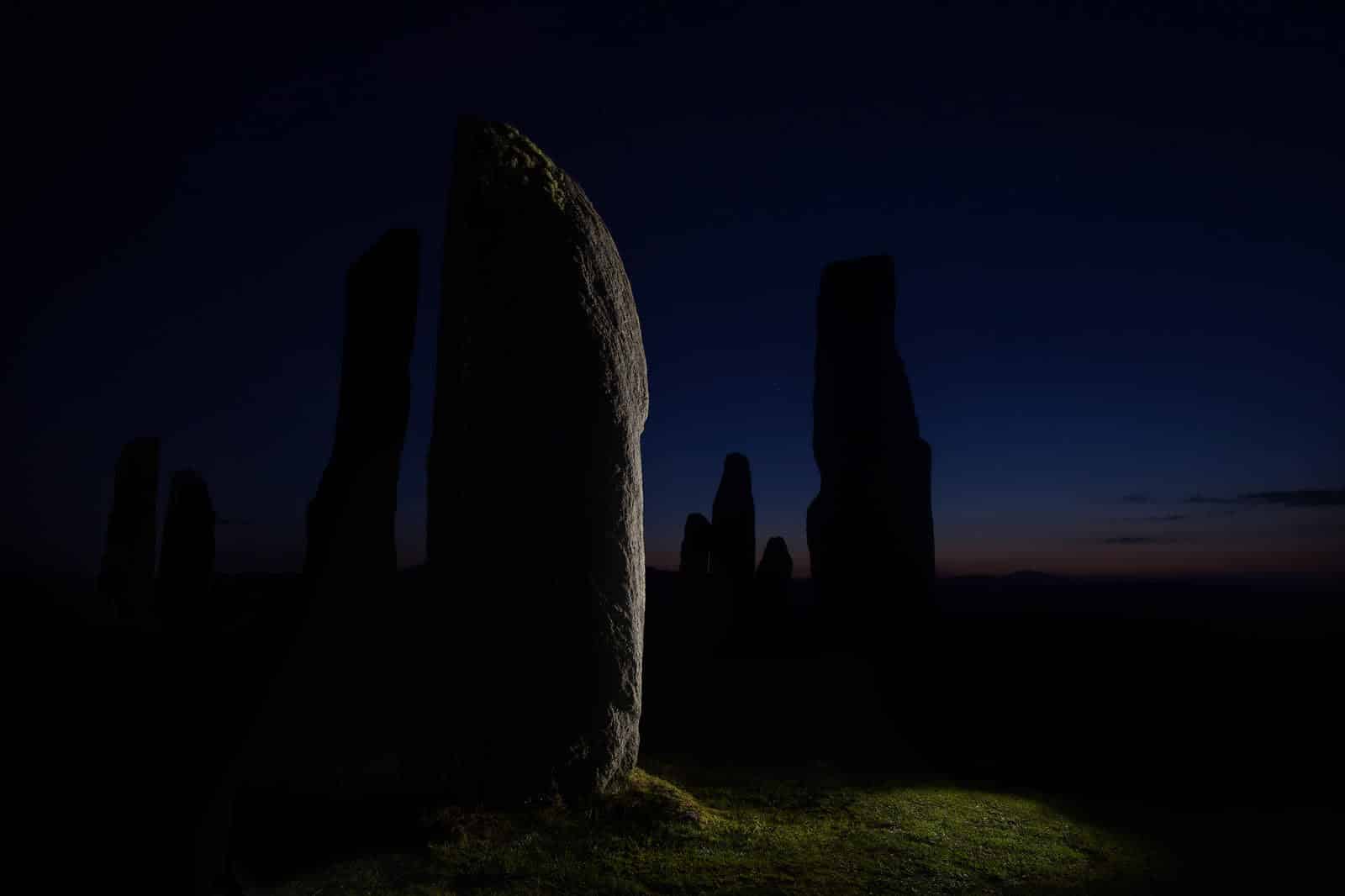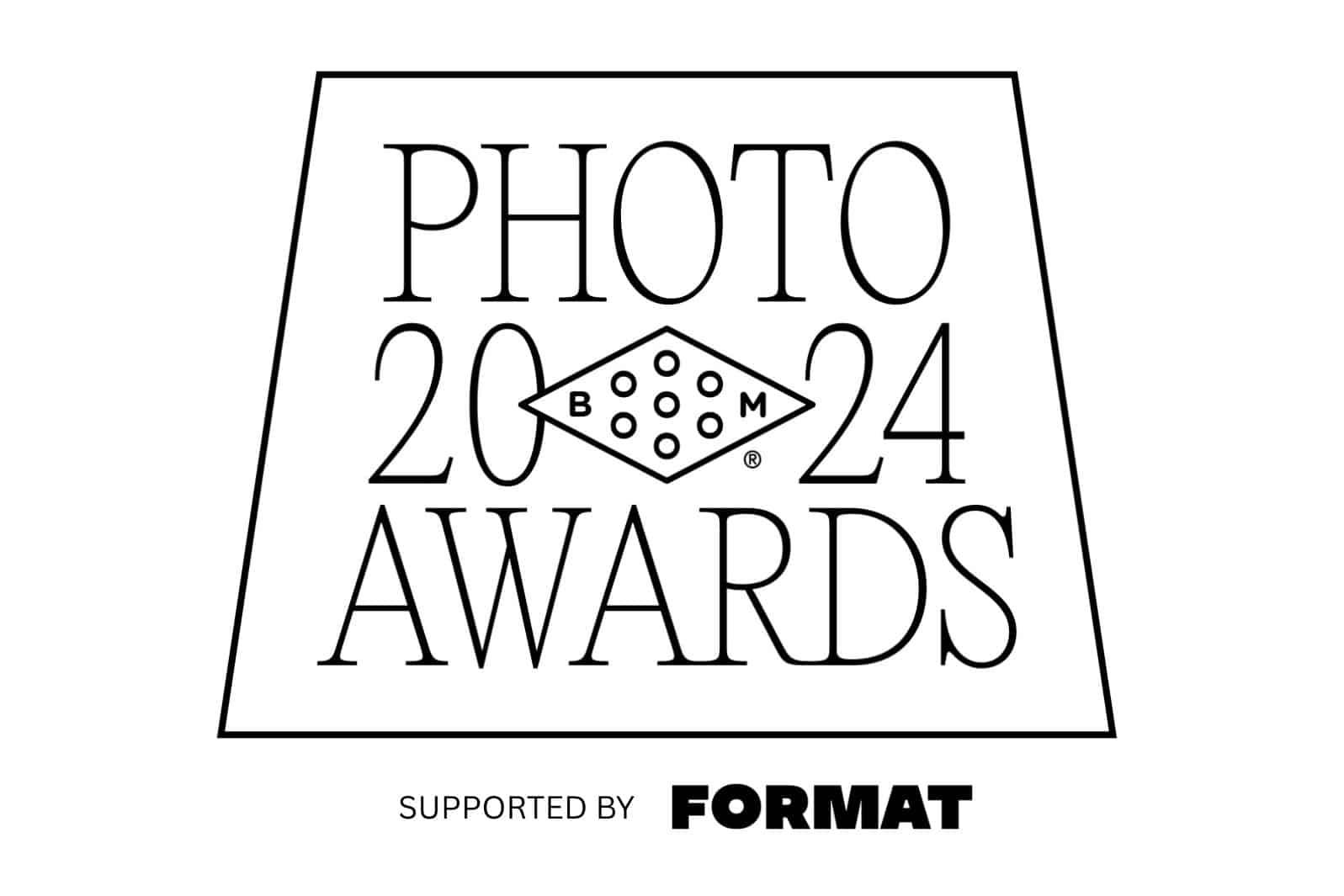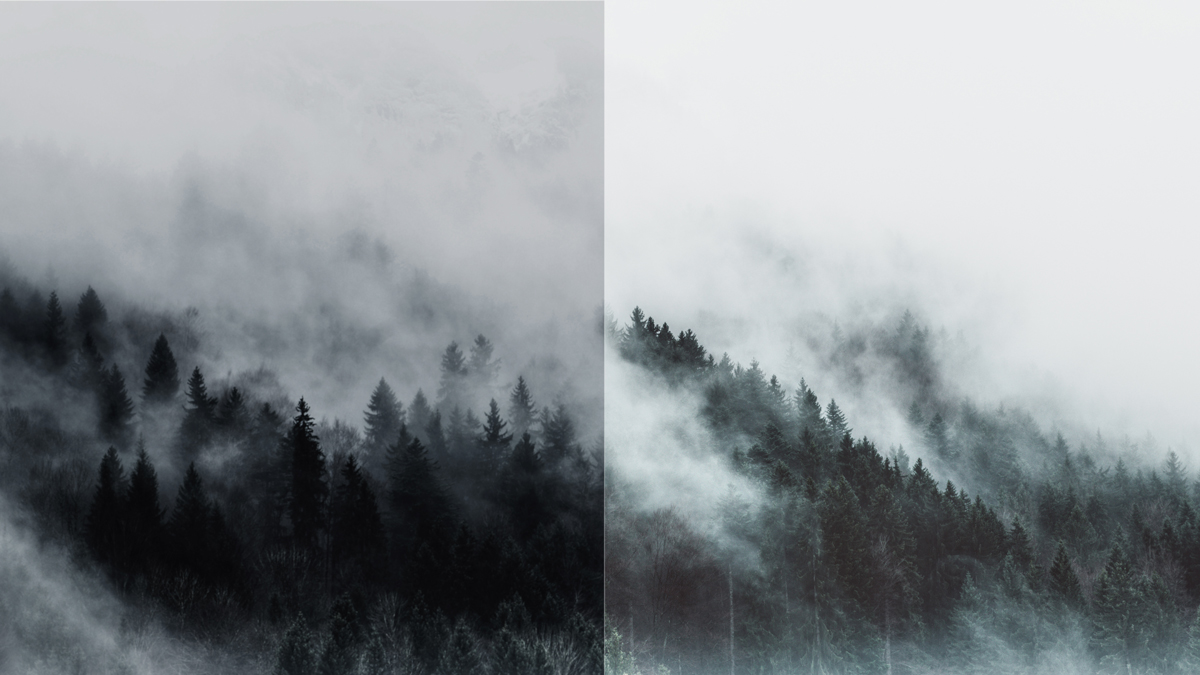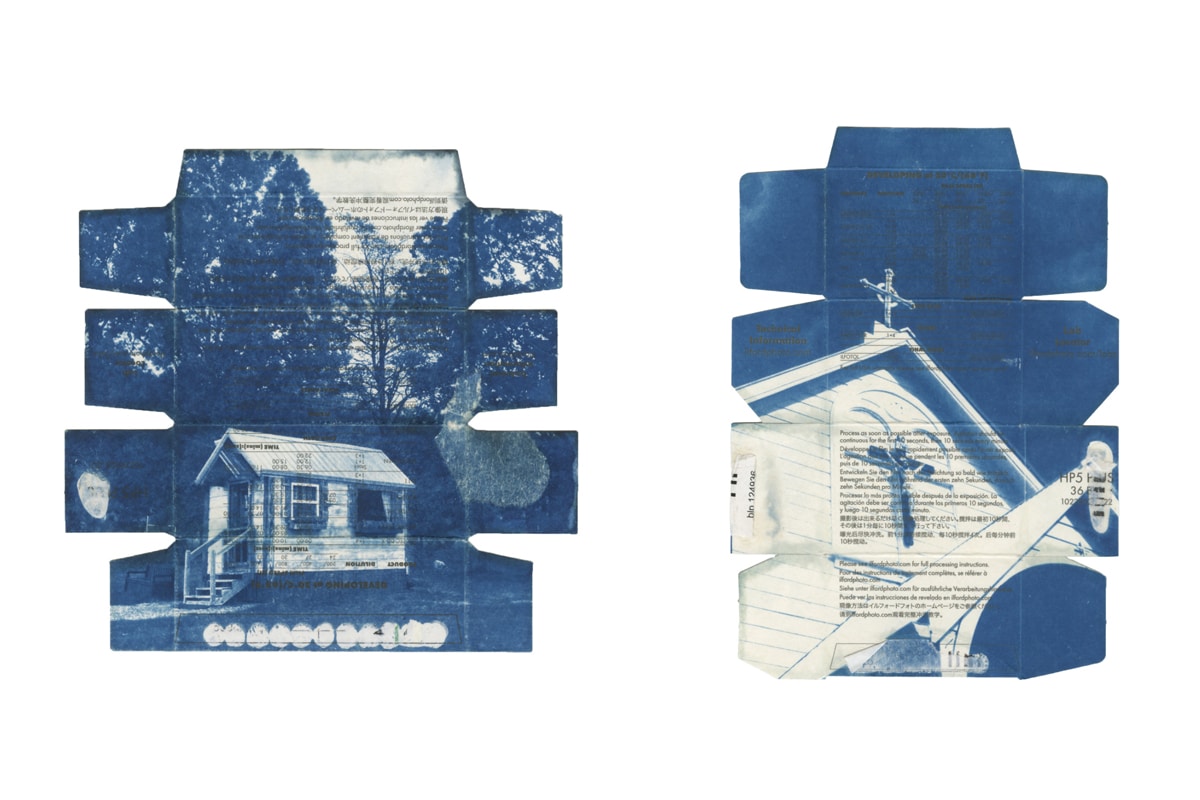Whether you want to turn your passion for beautiful landscape photos into a full-time career or you’re just looking for a way to make some extra money on the side, we’ll show you how to make money with landscape photography online.
Before you choose where to sell your landscape photos, there are a lot of details to consider in order to find the best platform for you. Each option has its own set of pros and cons, from the pay rates to the level of exposure you’ll receive. We’ll help you make an informed decision by going over the benefits and potential downsides of each platform, so that you can figure out which markets are best suited to you and your needs.
1. Sell Nature Photos Online Using an Ecommerce Store
Best for: Landscape photographers who want to control everything from the look and feel of their website to the prices they set and how and where they sell nature photography.
As an aspiring photographer, you probably already know how important it is to have your own online photography portfolio where you can show off your skills in a professional setting. If you’ve already got your online portfolio up and running, it’s a natural next step to simply build an ecommerce store right into your portfolio website.
This will allow you to sell nature photos directly to your potential customers, meaning that you’ll receive 100 percent of the income from your sales, with no commission taken by your website platform. It also gives you the freedom to set your own prices and present your photos how you want them to be experienced by choosing the website template that works best for you. Format has this feature built right in, so if you already have your online portfolio website set up, you can start selling your work right from your existing portfolio immediately.
Another benefit of having your own landscape photography store for selling nature photos? It encourages potential buyers to view your whole portfolio before clicking away, giving you the opportunity to show off more of your work. Unlike stock photo websites, potential customers will only see work that you’ve created, rather than having your photos mixed in with work from other photographers.
If you’re a photographer with an extensive travel portfolio, you’ll want your prospective customers to see as many of your great shots as possible, from Beijing to Copenhagen! To help attract people to your online store, post a few of your best photos to free stock photography sites and include a link to your store to improve your website traffic. If you’re not sure how selling nature photography on stock photo websites works, start by researching stock photography so you can get a sense of what type of photos are most popular.
There are many ways to gain customer interest and brand loyalty, including creating a creative landscape photography portfolio website and sharing them online. Consider starting your own photography blog, which will attract site visitors who are more likely to purchase your other products.
When you don’t know what to write about for your blog, focus on where your photography skills lie. Consider, for example, if you’re an expert on photography equipment and are already writing articles on cameras, lenses, and accessories for landscape photography. While this type of content may appeal most to fledgling landscape photographers, and not collectors, that doesn’t necessarily mean that they won’t also end up purchasing a photo print from your online store.
Instagram is also a great way to build your online presence and brand recognition as a landscape photographer. You can use Instagram to display your landscape photography work and build your following.
2. Pitch Your Landscape Photos to Websites and Magazines
Best for: Landscape photographers who are also open to writing opportunities.
If you want to see your landscape photos in print, you will have lots of options to sell your landscape photography. It’s always a good idea to do some research into the kinds of publications your photography is likely to be purchased and published by. . After all, it will be a waste of both your time and theirs if you submit landscape photos to a publication that usually focuses on portrait photography
Make the time and effort to grasp the publication’s style, focus, and the types of photos it uses. Start with looking into some magazines and websites that you read on a regular basis. To start selling to less-familiar brands, make sure to read through back issues or several months’ worth of posts before you begin selling, so you know what they are after. There are niche publications that receive fewer submissions than more popular publications, so these publications may be more receptive to pitches from freelance photographers without an established career yet.
After finding publications and websites that seem to be a good fit for your photography, go to their contact page and send a professional email with your work and landscape portfolio linked. To increase your chances of publication, professional photographers advise pitching an idea for an article when you submit your images. In this way, you’ll both explain your photos and provide a direction for the editor on how to fill out a full story.
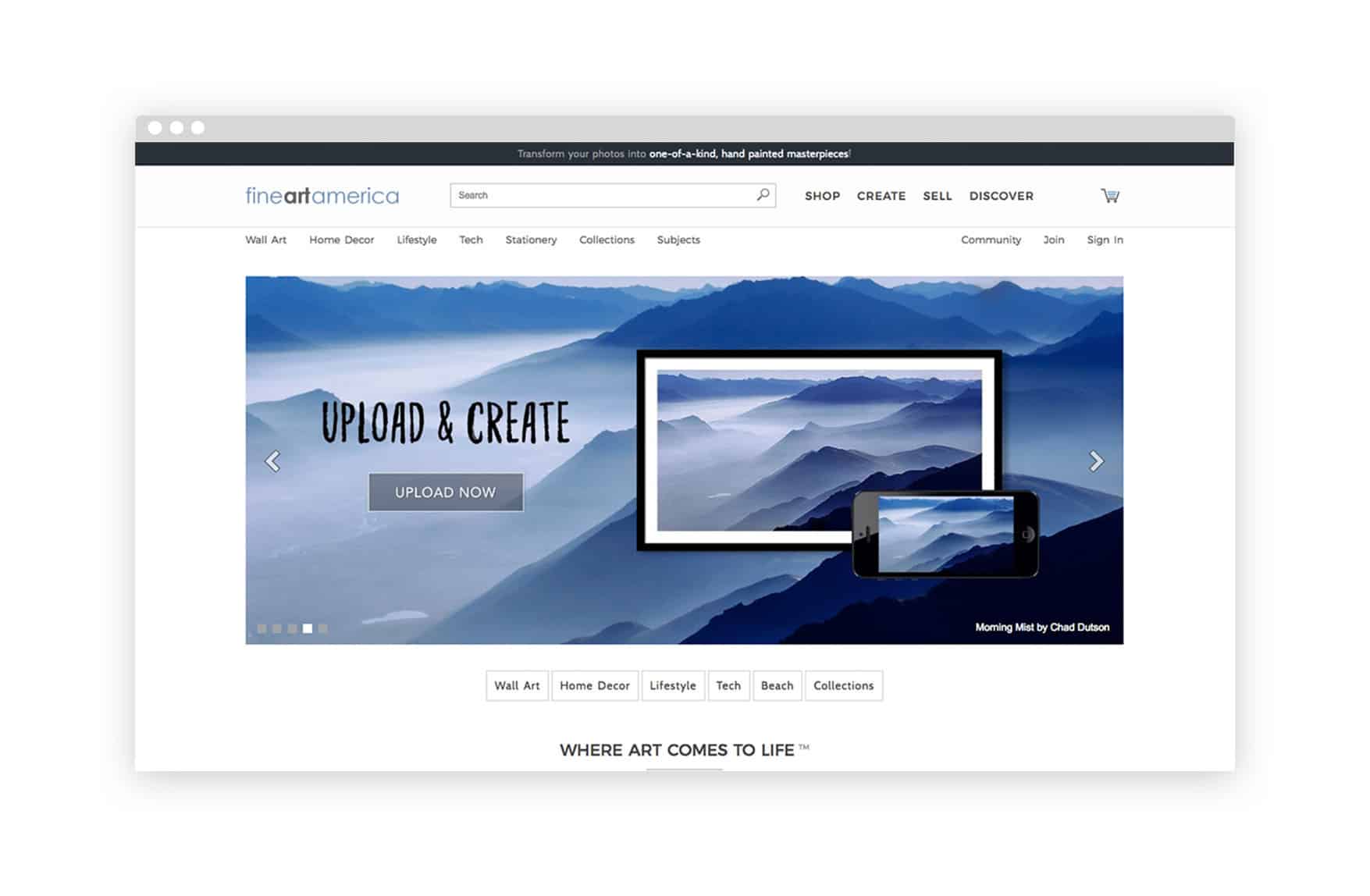
3. How To Sell Prints on FineArtAmerica
Best for: Photographers short on time who want to start selling prints.
If you like the idea of selling landscape prints but don’t know how to get started, FineArtAmerica offers an online marketplace with print on demand products ranging from posters to canvas prints. Many consider FineArtAmerica to be the best site to sell photography prints, especially if you don’t want to put a ton of time, effort, and research into finding a printer to work with.
It’s possible to upload your photos to your own ecommerce shop on your portfolio website, but you’ll have to handle everything from printing to packaging and shipping. With FineArt America, All you have to do is upload your images, and they’ll take care of the rest. The website has an entire section dedicated to beautiful landscape photos, making it a good way to gain exposure for your work to landscape print buyers.
Since FineArtAmerica is a print on demand service, once a customer makes a purchase, FineArtAmerica will be in charge of fulfilling the order. The company can make your images into a variety of products including framed prints, posters, greeting cards, phone cases, canvas prints, acrylic prints, and metal prints.
With print on demand websites, each product has a set price. The cost of a 26″x36″ canvas print is $50, and that money will go directly to FineArtAmerica. It is your decision how much of the base price you want to receive and then you can set the price accordingly. You can, alternatively, use FineArtAmerica to find interested buyers and keep 100% of the profits by creating, packaging, and mailing your own prints.
4. Submit Your Photos to Photography Contests
Best for: Photographers who may not have a large portfolio yet, and are looking for a simple option to start getting their work out there.
While contests are not technically a place to “sell” your landscape photos, they can offer the potential for some decent prize money. Winning a photo contest can help you start building name recognition, add credibility to your reputation as a professional photographer, and draw people to your online portfolio website and ecommerce store.
Applying for photo contests are also a great way to become familiar with nature magazines that buy photos. Even if you don’t win the grand prize, you can use the knowledge you gain from the experience to gain confidence when it comes to submitting your work for paid opportunities. There are plenty of websites out there like Photo Contest Guru which compiles a variety of photo contests into one place and outlines all of the contest requirements at a glance, and can help you keep track of the entry deadlines.
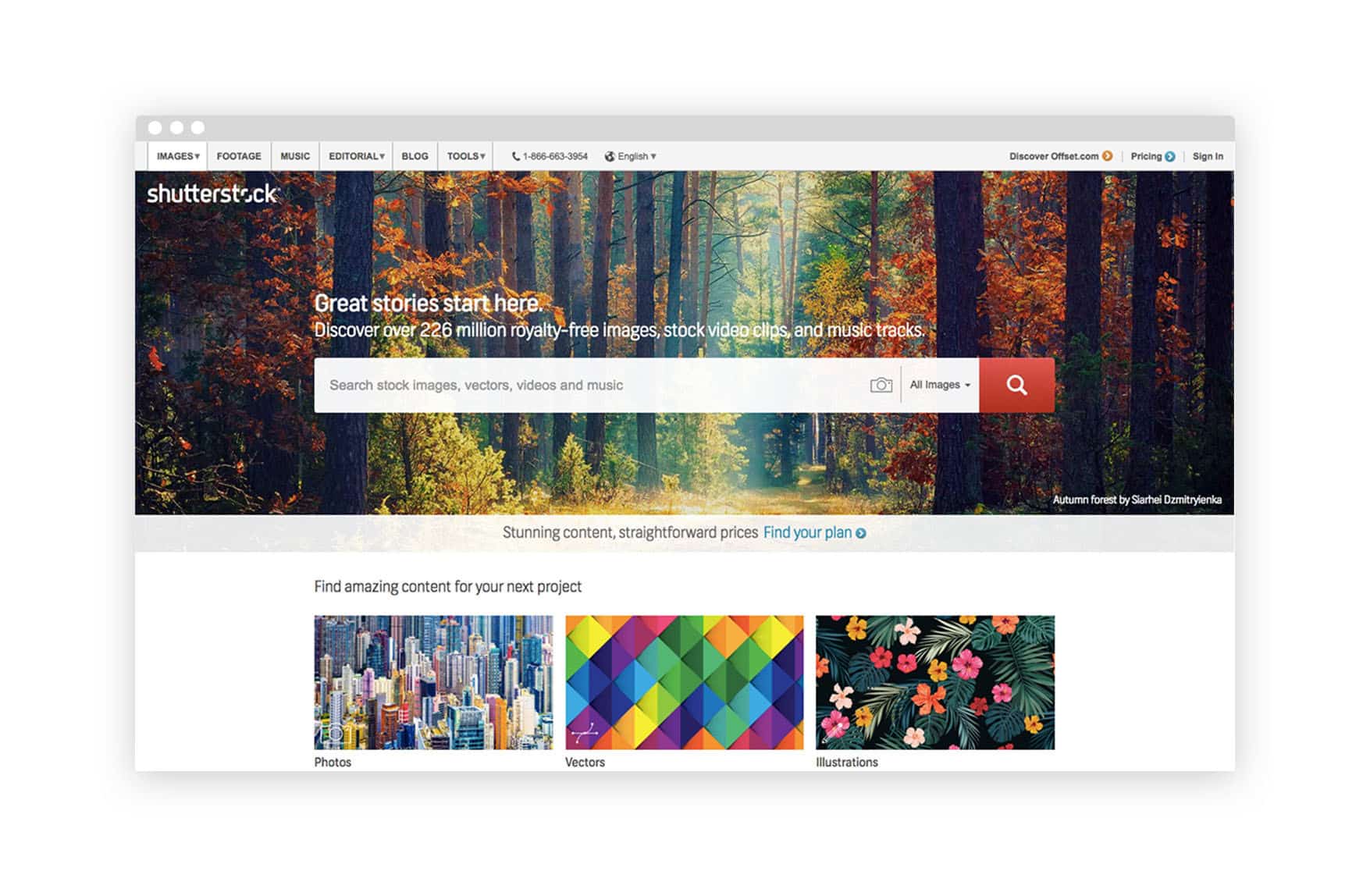
5. Make Money From Your Nature Photography Online Using Shutterstock
Best for: Photographers seeking consistent earnings from their landscape photos.
Shutterstock is a popular resource for independent photographers who want to make money from their photos. It is well-known and well-established for having steady earnings. Pay rates start at 20% and can reach 30% for lifetime earnings.
Contributors regularly see high daily download numbers, which makes Shutterstock stand out. Many stock photographers have reported that Shutterstock is their highest-earning job. They’ve claimed that they’ve paid out over $500 million in prize money since 2003.
There were past complaints that Shutterstock contributor approval was difficult, but the agency has since made the process easier. To apply, photographers submit 10 samples. Even if you only get one image accepted, you can become a contributor and begin making passive income from your stock photos.
Visit their website for more information on how to become a Shutterstock contributor.
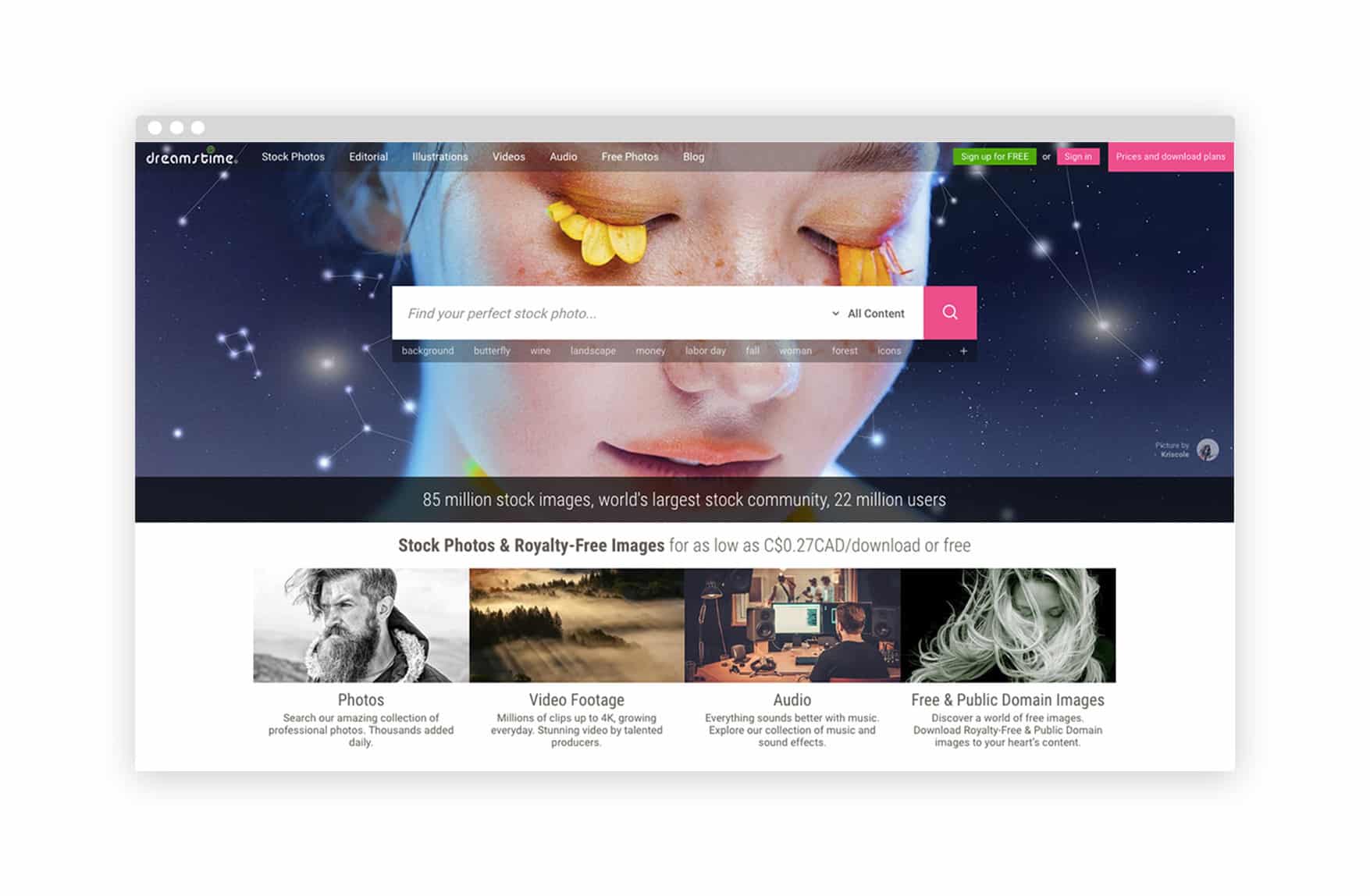
6. List Your Scenic Pictures for Sale on Dreamstime
Best for: Photographers who want the potential for high royalties—without having to reach thousands in sales first.
People trust Dreamstime to be a fair platform for contributors. This stock agency pays royalty rates ranging from 25% to 60%, which is high compared to many of their competitors. Image pricing and royalties vary depending on each image’s sales. This means that contributors at Dreamstime can start making good money by selling scenic images without needing to earn more. High-quality landscape photos are sufficient to make sales. Dreamstime is known for its high-quality content, a contributor forum that’s incredibly useful, and running regular photo contests that reward contributors with money for their work.
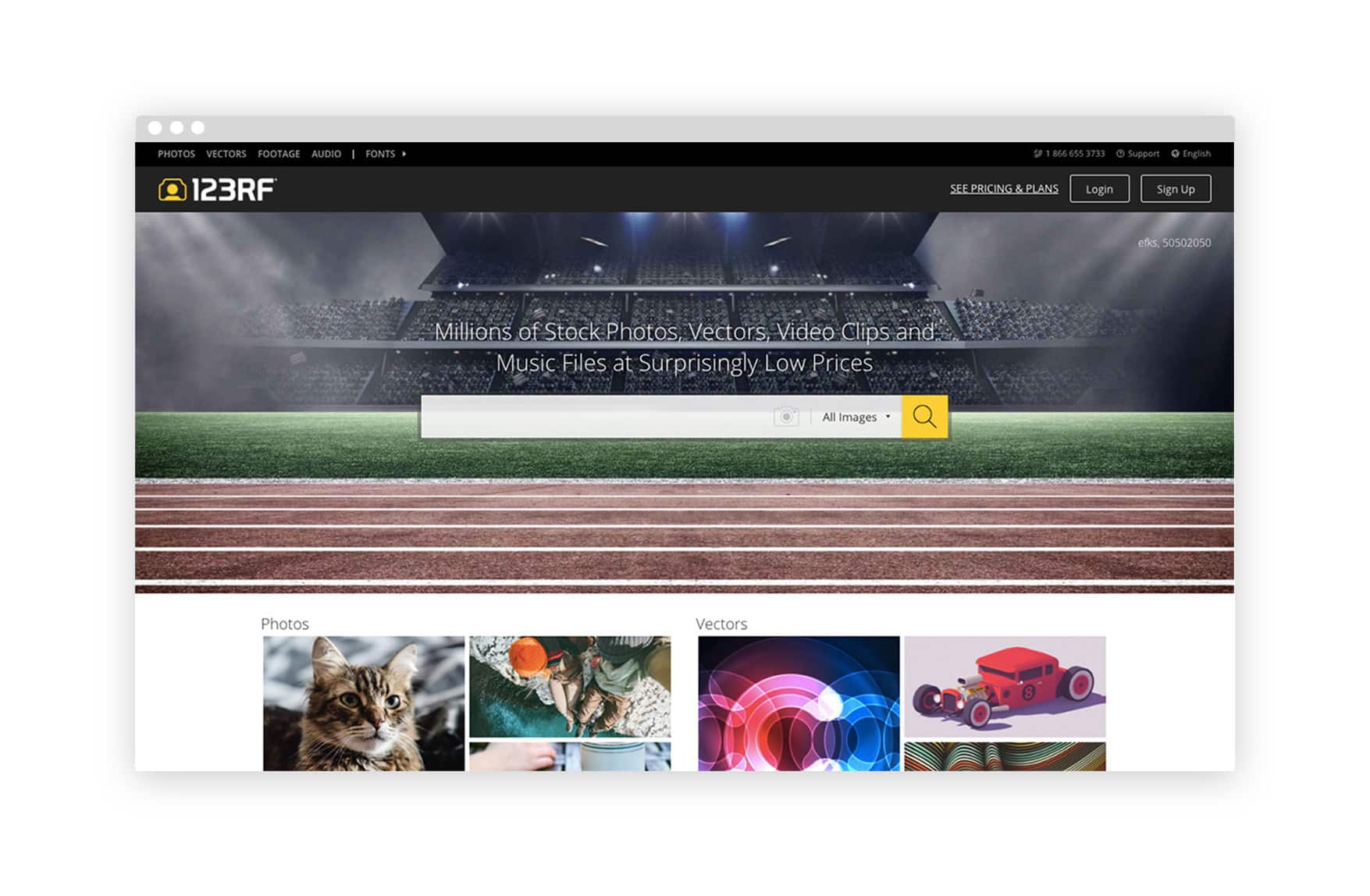
7. Start Your Landscape Photography Business On 123RF
Best for: Photographers who plan on contributing new landscape photos consistently and are looking for ease of use.
Other stock agencies like 123RF pay contributors consistently, so it’s a great place to build your landscape photography business. It’s different from the others because the image uploading process is very quick. While their FTP upload system works well, they also process images promptly, and you don’t have to worry about filling in a list of unnecessary categories.
Additionally, they charge royalty rates that range from 30% to 60% depending on your level of contribution. Your contributor level is based on your 12-month rolling total of downloads. To maintain your position in the hierarchy, you must regularly provide new content. However, in comparison to other stock sites, the requirements to level up are not unreasonable.
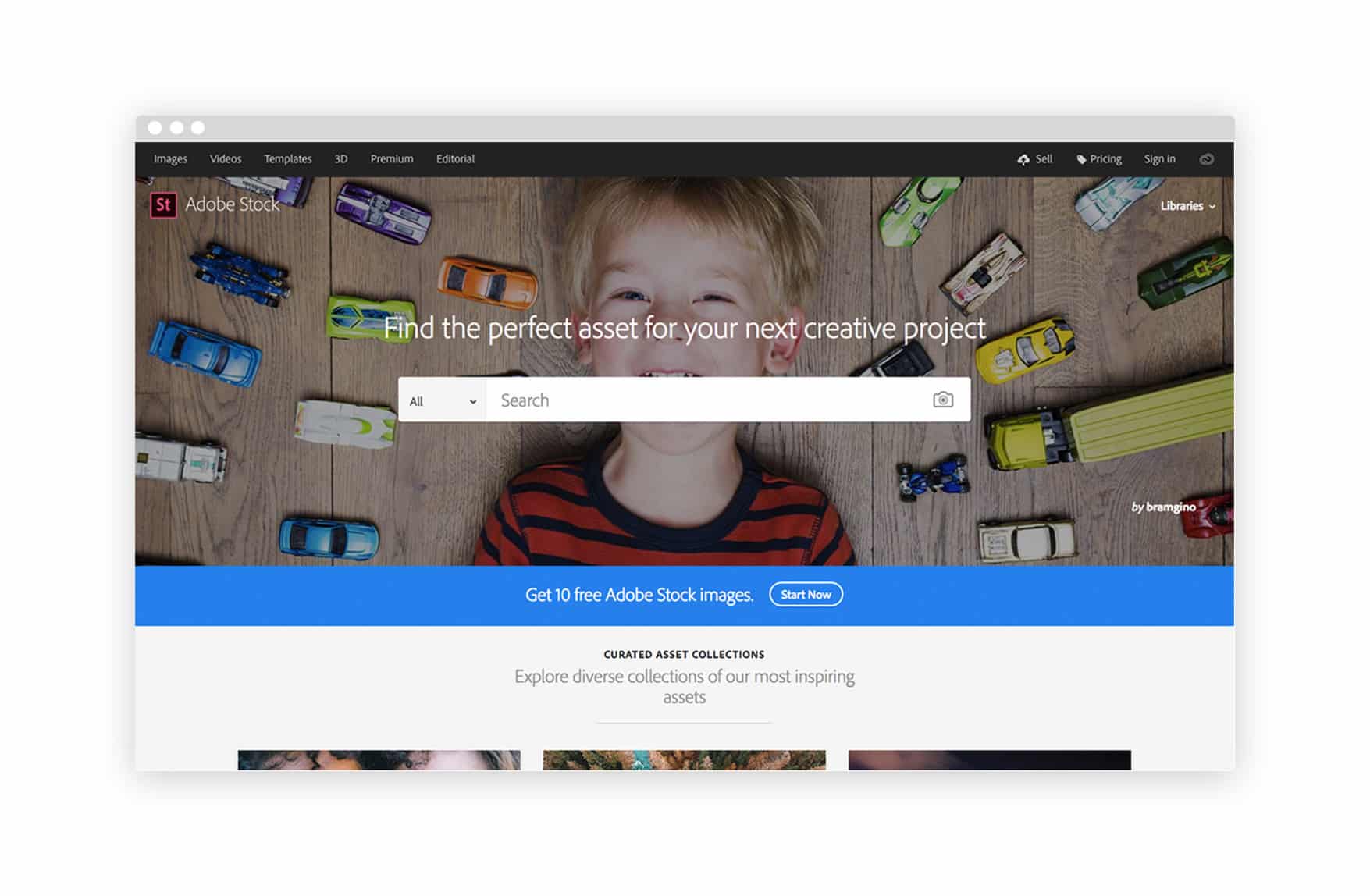
8. Sell Your Landscape Photos Using Adobe Stock + Fotolia
Best for: Photographers who want to earn high royalties without the need to sign over exclusivity.
Adobe Stock is another great stock agency to sell landscape photos online. One key benefit is the starting royalty of 33 percent for new contributors, and they don’t require exclusivity rights. Because Adobe bought Fotolia, images you submit to Adobe Stock are also automatically made available on Fotolia. This means that you get your landscape photos on two websites, which widens your market.
Stock integration with Creative Cloud applications and PowerPoint is unique to Adobe Stock. When designers decide they need an amazing view, they can search, preview, edit, and buy landscape photography images all within the application. Adobe Stock also has a reputation for posting submitted images quickly.
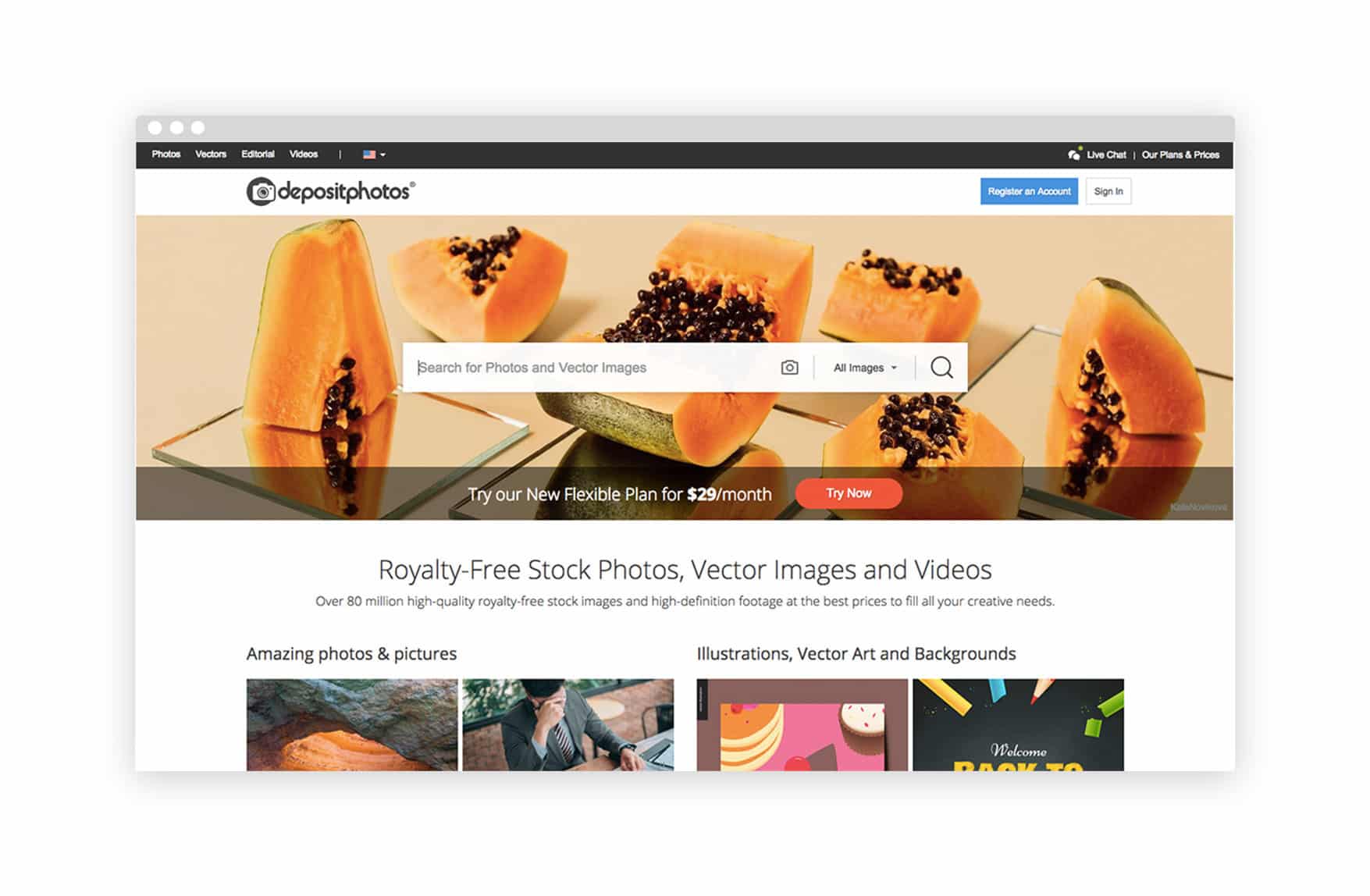
9. Sell Your Photos on Depositphotos
Best for: Photographers seeking exposure who are willing to wait to see their royalties grow.
Depositphotos is a rapidly growing stock photography agency. The company has an aggressive marketing plan and offers a lot of special deals to encourage purchases. As a result, it is always drawing in new buyers.
The royalty rates for Depositphotos contributors are comparatively high. They start at 34 percent and can increase to 42 percent as you sell more images. For example, once you reach 500 image downloads, the royalty rate increases to 36 percent. However, some have complained that reaching the highest contributor levels is difficult. To become a top-tier contributor, it takes 150,000 downloads, and each image purchase only counts as 1/3 of a download.
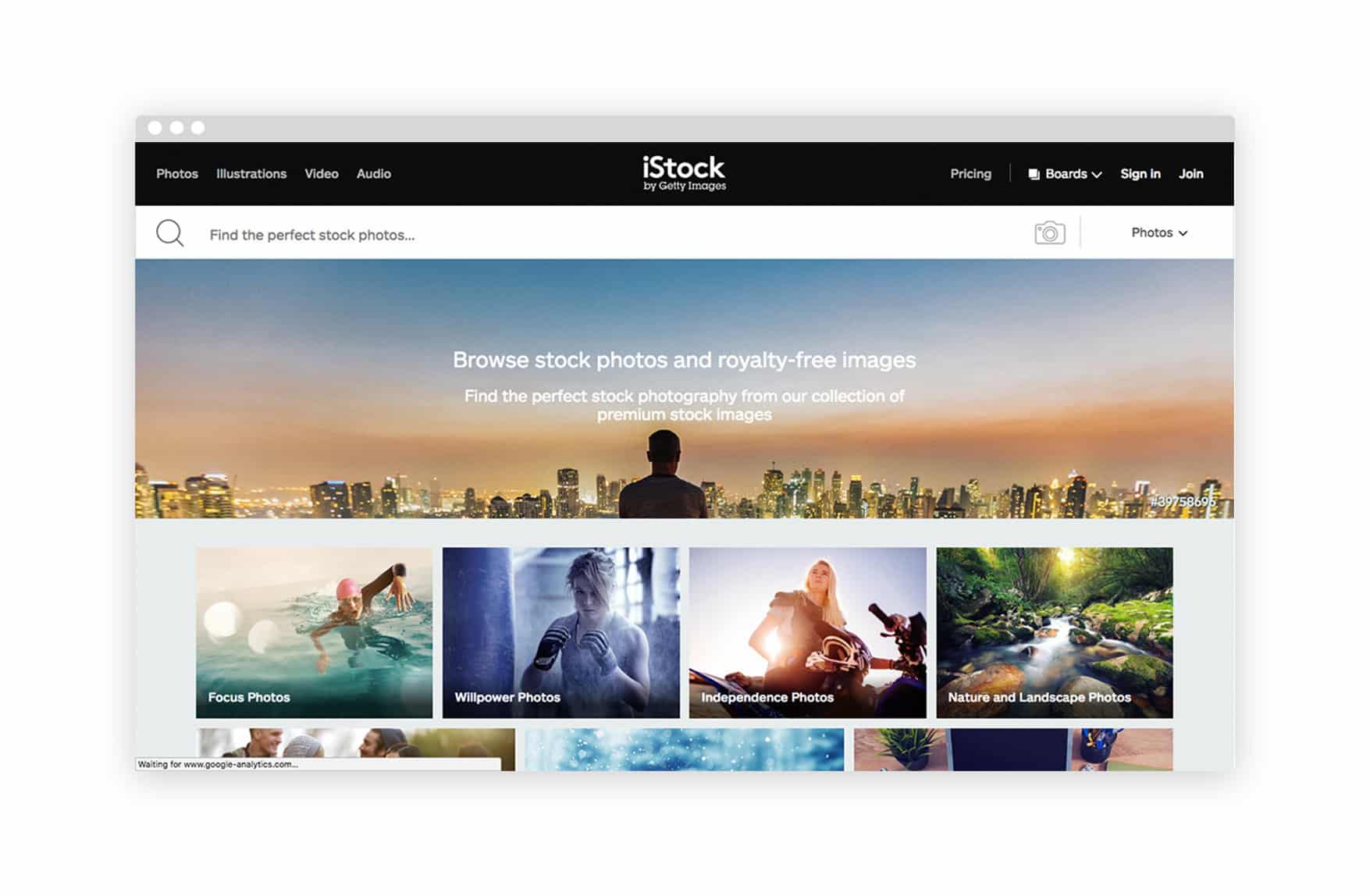
10. Put Your Landscape Photography for Sale on iStock
Best for: Photographers that are prioritizing exposure over income.
iStock is one of the largest stock photography providers out there, so it’s hard to beat when it comes to getting exposure for your work. They reach 1.5 million customers in over 200 countries around the world.
Since 2006, iStock has been owned by Getty Images, Inc., which has been a well-respected player in the industry for many years and is known for high-quality content. When you apply to become an iStock contributor, the editors decide whether iStock or Getty Images is a better fit for your work, and invite you to join the appropriate site.
The starting royalty rates are lower than the other stock image sites included in this list: 15 percent for iStock, and 20 percent for GettyImages. Also, keep in mind that Getty Images requires exclusivity rights on all content.
With the vast number of customers, there is excellent potential for earnings when you list your landscape photos for sale. However, what really sets iStock apart from the rest is their large user base, which increases the number of eyes on your landscape photos.
Looking for more photography industry insider tips? Check out:
How To Price Stock Photography
11 of the Best Facebook Groups for Photographers
5 Ways to Get Freelance Photography Clients
